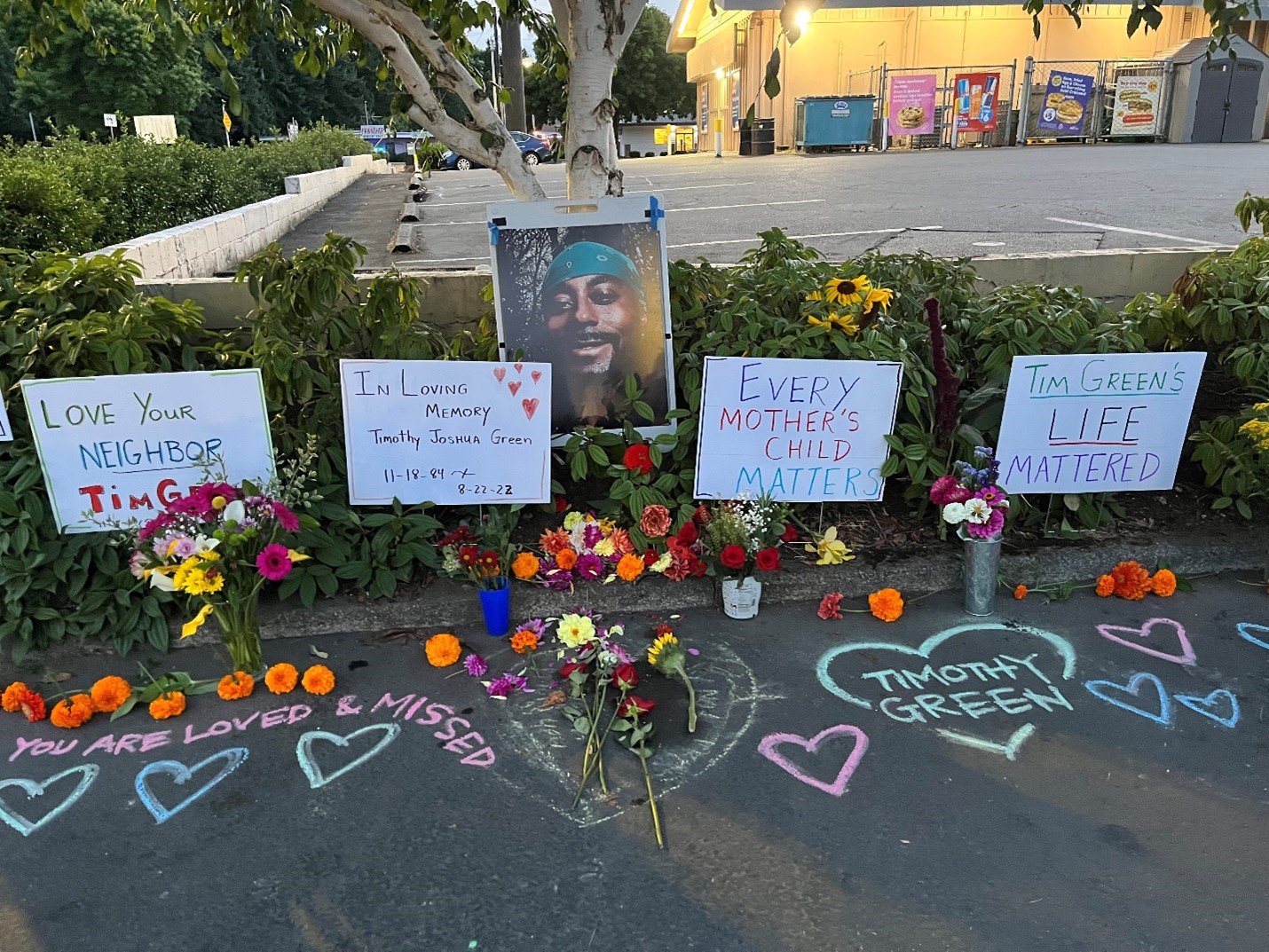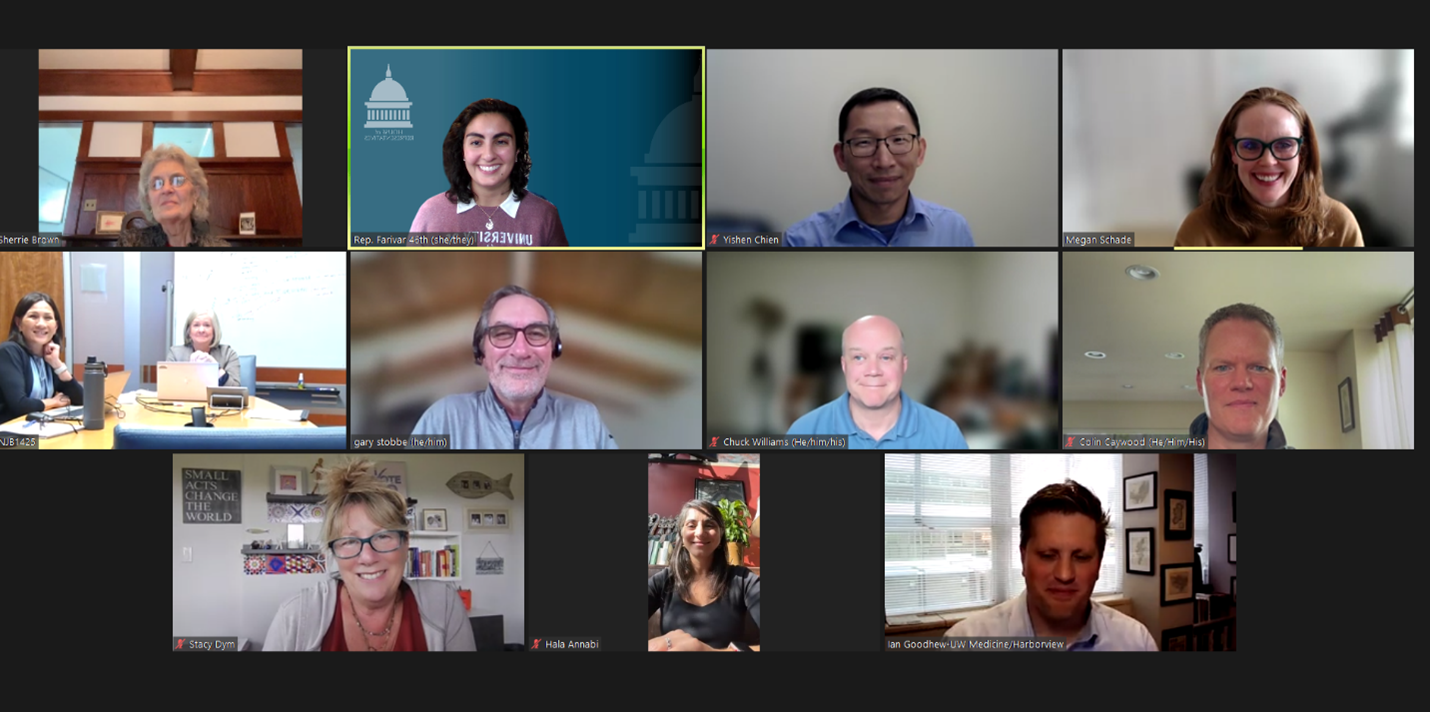Dear Friends and Neighbors,
Over the last few weeks, both recent and not so recent events have sparked a renewed call for reform of police culture and accountability. Our community, but especially our Indian-American neighbors, are reeling from the dismissive and harmful comments of a Seattle Police Officer after another officer hit and killed a 26-year old student. In the south sound, the trial has begun for three Tacoma officers charged in the death of Manny Ellis – a black man who was held face down on a sidewalk in March of 2020.
Last month, I attended the memorial of Timothy Green, who was killed by Olympia Police Officers during a behavioral health crisis last summer. It was a beautiful event that brought together families who have lost loved ones to police violence and advocates that are fighting for police accountability. Timothy Green’s death shouldn’t have happened. All our work to de-escalate Washington, regulate police use of force, and establish a separate hotline for behavioral health crisis should have stopped this. Tim’s death tells us we still have lots of work to do to make sure that black and brown disabled folks get help instead of being hurt.

Trueblood Update
I’m excited that the University of Washington is launching a pilot program for Trueblood class members with developmental disabilities! Last session, we worked to amend this pilot program into SB 5440 to take care of some of our most vulnerable class members. For those who are unfamiliar, Trueblood class members are all people waiting in jail for competency evaluation and restoration. Many people who go through the justice system are found “unrestorable” and thus, have their case dismissed. These individuals often go back into the community without services or receive involuntary treatment.
By creating this diversion opportunity, we stop the inhumane cycle of sending individuals to the competency restoration system who have previously been found not competent, shorten the wait times for other class members, and start to meet our obligations as a state to these class members as well as the federal court. Pictured below are the UW staff who will be overseeing and implementing this pilot program!

Looking Ahead
While some of the topics in this e-newsletter may create a heavy heart, I want to reassure you that we have achieved meaningful progress already on the issues of addressing behavioral health and community safety. Last session saw the investment of over $253 million for domestic violence services, the Office of Public Defense, expanding criminal justice training, funding therapeutic courts, and other services. We also invested over $1.1 billion into behavioral health systems to fund the 988-crisis lifeline, Designated Crisis Responders (DCR’s), health engagement hubs, pre-trial diversion programs, law enforcement assisted diversion, and much more.
Since it is going to take time for this funding to reach communities and for cities, counties, and state partners to put these dollars to use, we must continue seeking solutions to the issues of community safety, police accountability, and addressing the behavioral health crisis. Next session, we have 60-days to try to pass legislation such as HB 1445 to investigate practices and patterns that violate constitutional rights. Additionally, we have an obligation to refine SB 5536, addressing the Blake Decision, to further support treatment and diversion for substance use disorder, rather than prosecution.
Stay In Touch
I’ve said it before and will say it again: our district is fortunate to have engaged citizens who actively participate in the public process! For a more in depth review of the work we’ve accomplished last session, you can view my end-of-session mailer here and all the legislation I’ve supported in 2023. I encourage you to also follow me on Facebook. Please continue to stay in touch. Thank you for all you do!
In service,

Rep. Darya Farivar
